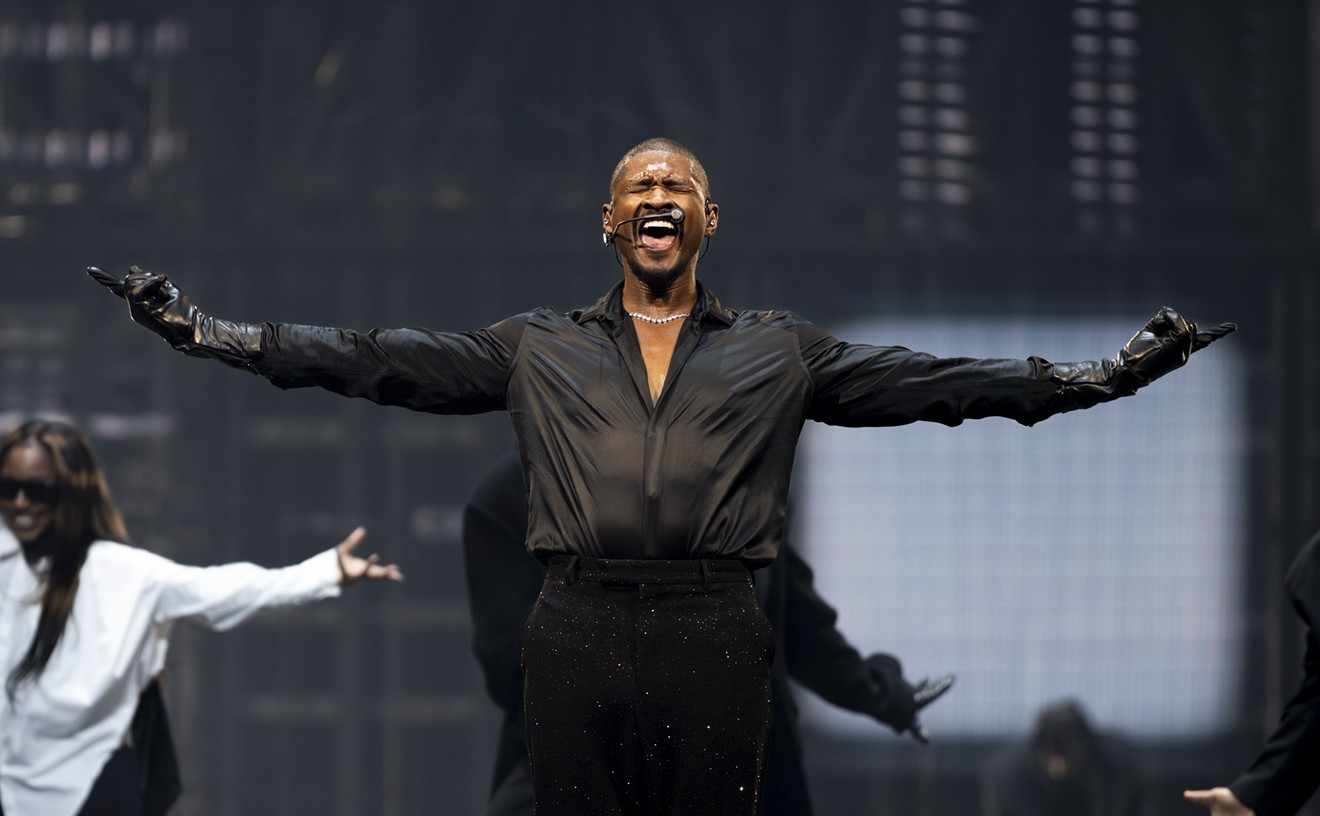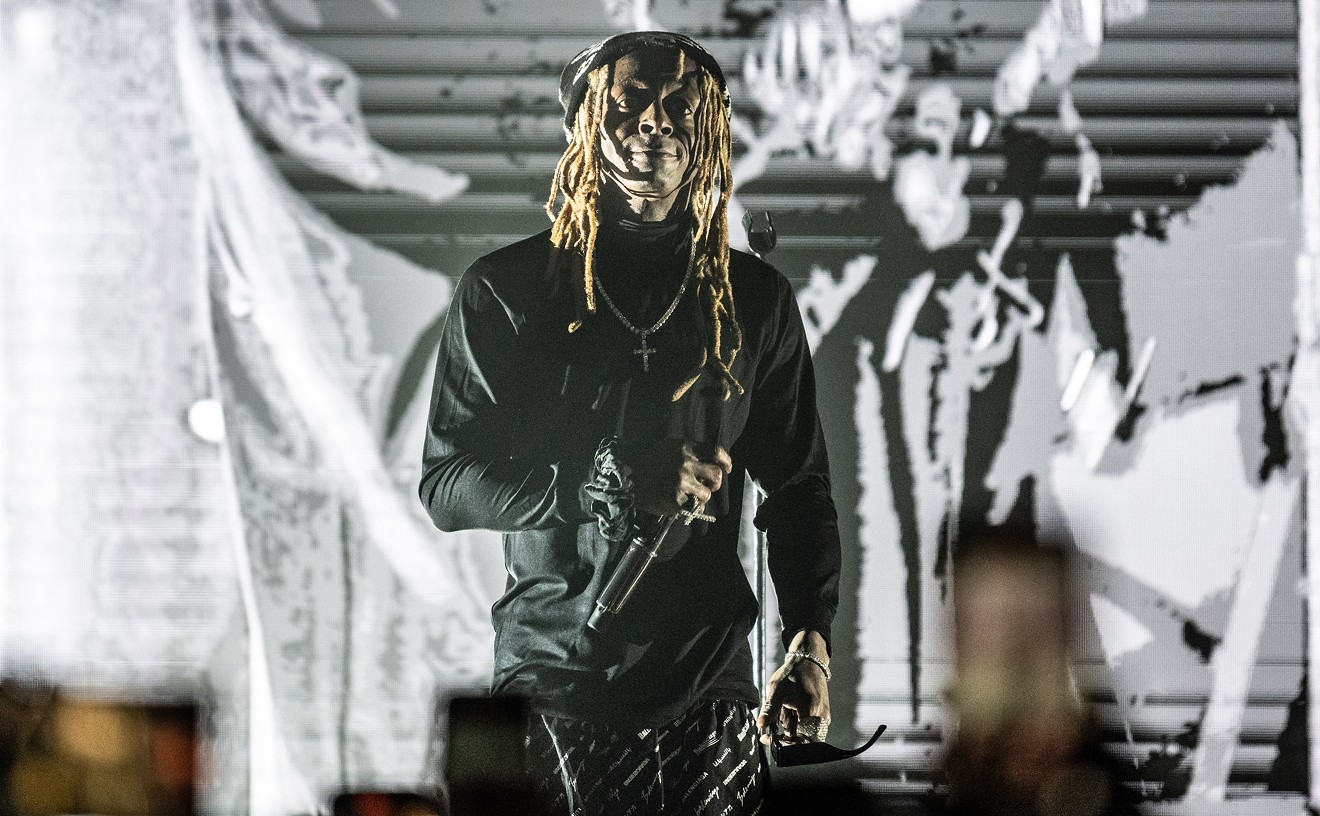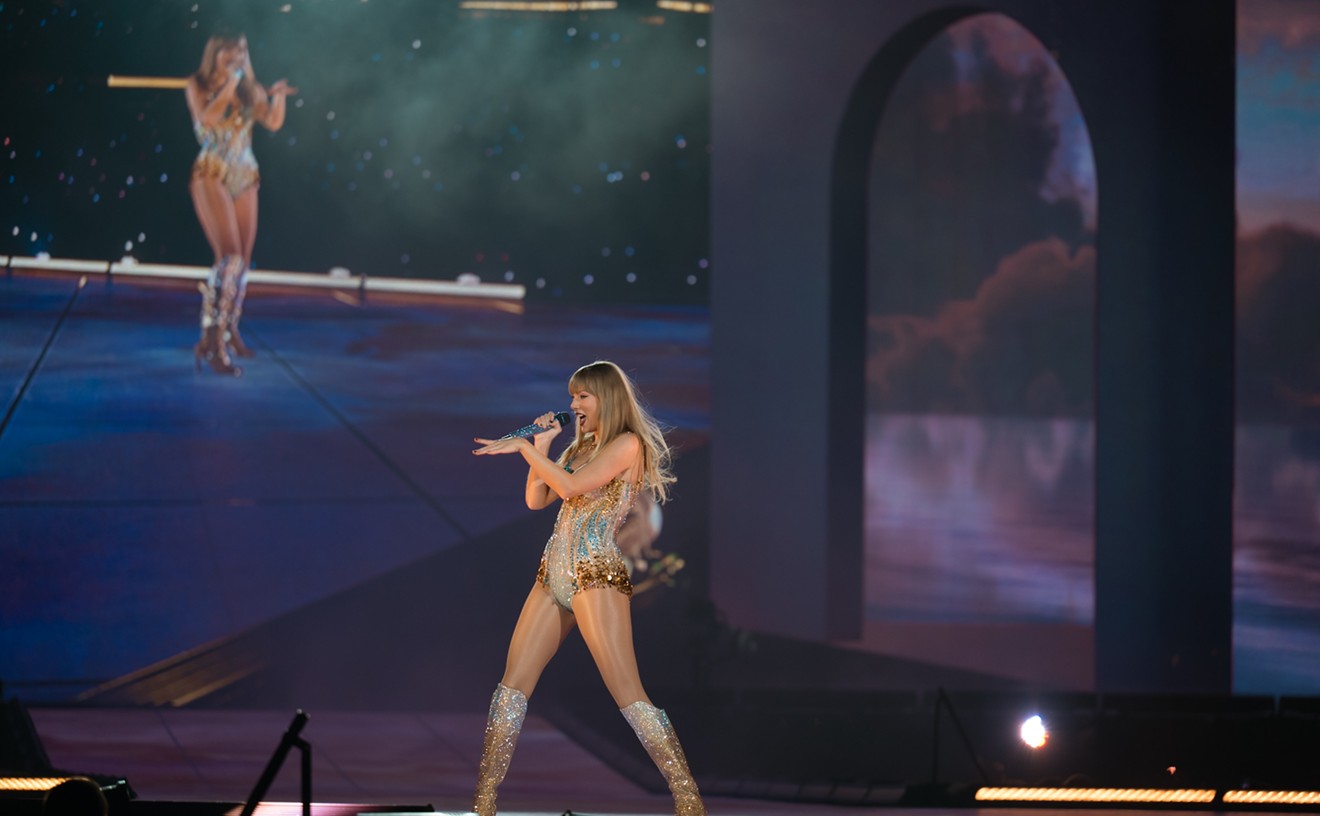For the past decade, few artists have become as synonymous with their instrument as has Robert Randolph with his blazing steel guitar. And, given his place on Rolling Stone's 100 Greatest Guitar Players of All Time list, Randolph had quite the luxury in choosing from an elite list when it came to selecting which producer would helm his upcoming record, the brilliant We Walk This Road.
In the end, he opted for uber-producer, and Fort Worth's own, T Bone Burnett. And, in Burnett, Randolph not only found a partner who understood his origins, but he also found someone to help him grow as a student of music.
Earlier this week, we chatted with Randolph, who'll perform at the Granada Theater on Saturday night, about his ambitious new gospel-steeped record, as well as his relationship with his decorated producer.
The producer for your new record, T Bone Burnett, is about as hot of a name as there is for a producer these days, given all his awards for his work on Crazy Heart. How did you get hooked up with him?
I went through a bunch of ideas with the head of Warner Bros. We had some conversations about working with a real music historian-type of producer. We wanted someone who would really understand the roots of where I've come from as far as my gospel background and all that. We wanted someone who understands how to put the most soulful music together in order to make a real career record. We came up with T Bone out of a list of only a few guys--Daniel Lanois, Ry Cooder, T Bone and Rick Rubin. But we figured T Bone would be the best guy.
Those are some really impressive names to choose from. What was it like
once you started to work with Burnett?
It was great. When I first met T Bone, he said to me, "I believe in you,
and there is only one Robert Randolph. And I believe that together, we
can create a record full of songs that people will be singing for the
next 30 or 40 years."
You placed a great emphasis on the song selection for this album. What
went into the process of picking which songs would be included?
Even more than the actual songs that landed on the album, it was just a
treat to sit with T Bone and really make a record where you really want
to make something that sounds like you. We sat with some early field
recordings and some really old gospel stuff. T Bone explained that this
is how Dylan became Dylan and how Led Zeppelin became Led Zeppelin--by
listening to, sort of, the original music library. This is the roots of
American music and we wanted to see how it would influence the wild and
wacky mind of Robert Randolph. All we did was get in the studio and make
great songs. Whether we wrote them or covered them, we wanted to make
them great.
Four years is a long time to take between album releases. Did the scope
of this project contribute to the length of time between albums?
Yes. We discovered this whole new world of music, and there were so
many people that were a part of this record. We recorded 40 songs for
this album. We had two weeks with Leon Russell, a month with Jim
Keltner. Bob Dylan would come by. Robert Plant and Allison Krauss would
even come by and share knowledge and explore this musical world.
So, Dylan, Plant, and Krauss would just stop by and hang out during the
recording?
We would all sit around and just talk about music. It was actually
really good for me, since I didn't really know much about a lot of other
music, outside of the church where I grew up. In the last 10 years,
I've discovered Hendrix and Dylan and all these other guys. After
sitting and playing with Russell and Robbie Robertson for a while, it
just opened up this whole new world for me, really
So, in the church you grew up in, how prevalent was the steel guitar?
The church we go to is the House of God Church. It was formed in the
early 1900s and the steel guitar is the main instrument. But we have
drums and all that, too. Our story is somewhat like the Buena Vista
Social Club. The guys who were playing in the '30s, '40s, '50s, '60s, '70s and '80s are my rock stars. I wanted to
be like them and play like them.
You've become a big draw on the festival circuit. As a young church
attendee, did you ever imagine playing in front of a bunch of dancing,
dread-locked hippies?
I've never thought about it like that! You know, when we started to
play clubs in New York City in 2000, we went to a Medeski, Martin &
Wood show where Phil Lesh was sitting in and I remember thinking, "What
in the world is this?" Next thing you know, I become a part of that
world of wild hippies and crazy rock fans. I've traveled with Eric
Clapton, Dave Matthews and Santana now. It's like Elton John once told
me, "We thought we had heard it all and knew what rock 'n' roll was
going to be, and then you come and start making music like this."
Robert Randolph & The Family Band perform Saturday, June 5, at the Granada Theater.












